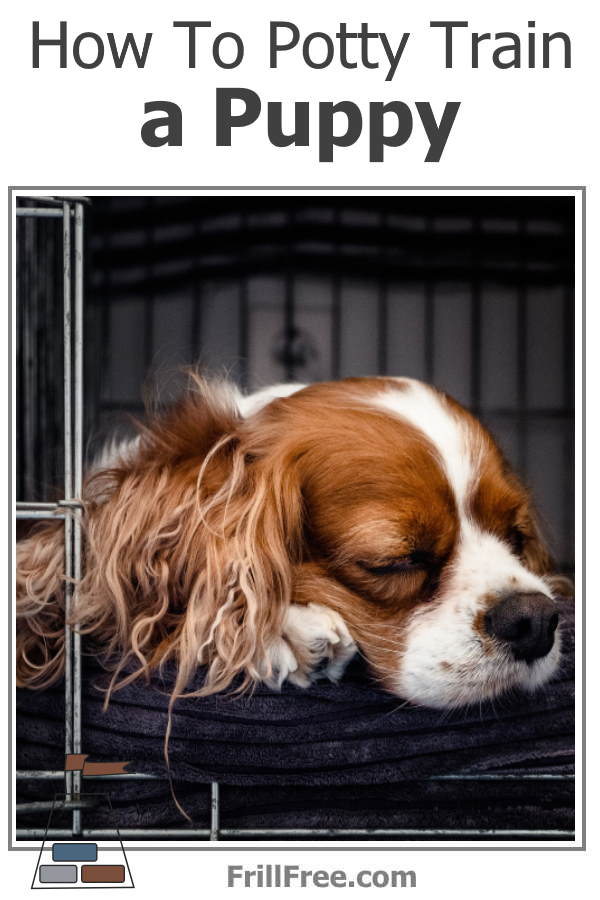- Homesteading
- Critters
- MS Service Dog DIY
- How to Potty Train a Puppy
How to Potty Train a Puppy
Spoiler Alert: The Key is Management
Your puppy has come home from the breeders with you, and one of the first things that becomes obvious, apart from how bitey they are is how much they pee.
This is perfectly normal - in fact, you would worry if they weren't eliminating on a regular basis as this could mean a kidney problem. If they have to pee after they eat, along with a poo, or pee after they play, or when they first wake up, all is well with their digestion.
So the very first thing you need to remember is that you will never want to let your puppy practice unwanted behaviours. A behaviour that has been practiced can become a habit, and having a puppy that sneaks off to pee on your spare bedroom carpet is not something you'll like.
Keep your puppy in sight at all times, preferably on a house line, which is a light rope or leash attached to their harness or collar.
Make sure the end of it can't get caught around things, or strangle the puppy. I take the collar and house line off any time the puppy is in his crate, which for the first few weeks or months will be often.
Puppies need to sleep for 20 hours out of every 24, even though it doesn't seem like it. While awake, it seems like they are a whirling dervish.
The rules for potty training are pretty simple. Take the puppy out to his place in the yard every time;
- he wakes up from a nap or his nighttime in the crate
- when he has a drink
- when he's just finished a play session or training session
- when he's had a meal
At first, it will seem like you're always outside with him. And this is how it has to be. Don't shove him outdoors by himself. You go too, with him on the leash.
Educate him where to eliminate by hanging around in that spot, moving in slow circles if he seems to be reluctant. If it seems to take him forever to find the right spot, leave one of his droppings in the area. The smell of it triggers the urge (ew, I know).
Clean up after him and use a bokashi to break down the poo.
Don't talk, except for a quiet 'good puppy' when he goes. In time, maybe within the first week, you can start using a cue like 'go potty' and then quiet praise when he does.
Eventually, this peeing on command will be so valuable, you can tell him to pee before going in the car for a long trip or to a place where it might not be convenient for him to potty.
I recommend using a crate or confining your puppy for the first few weeks or months. There are so many benefits to knowing where your puppy is at all times that he's not tethered to you.
What To Watch For;
Your puppy will give you some notice that he's got to go outside, but sometimes the signs are very subtle, and his bladder is small and may not give you much time.
It's important to be on alert any time your puppy is awake, so stay off your phone, and keep your eyes on him.
The signs that he's got to go pee could be an anxious expression, nose to the ground, or even squatting. In which case it could be too late and the accident is in the process of happening.
If it does, not to worry. Use an enzymatic cleaner to get rid of all the odor.
Don't use bleach which could hurt his sensitive nose and damage the floor or carpeting, or ammonia, as that resembles the smell of pee and will just encourage another accident in the same place.
In time, you can teach your puppy to ring a bell at the door when he has to go out. Hang the bells by the door, and you ring them when you take him out.
In time, he'll associate the bells with being let outside, and ring them for you. This is super useful, and you can even take the bells with you when you go on vacation and he can associate the same action of being let out with the sound, wherever that happens to be.
What Not To Do When House Breaking a Puppy
Never spank, scold or rub the puppy's nose in a mistake. He won't learn anything from this except to hide it better, and that you're a big meany. Let him know that you'll support him in this very adult behaviour of peeing and pooing outside in the yard.
I don't recommend puppy pads that they use to pee on in the house. Unless you absolutely cannot take him out (you're in inner city apartment, and there is crime out there) please do yourself a favor and take them out.















